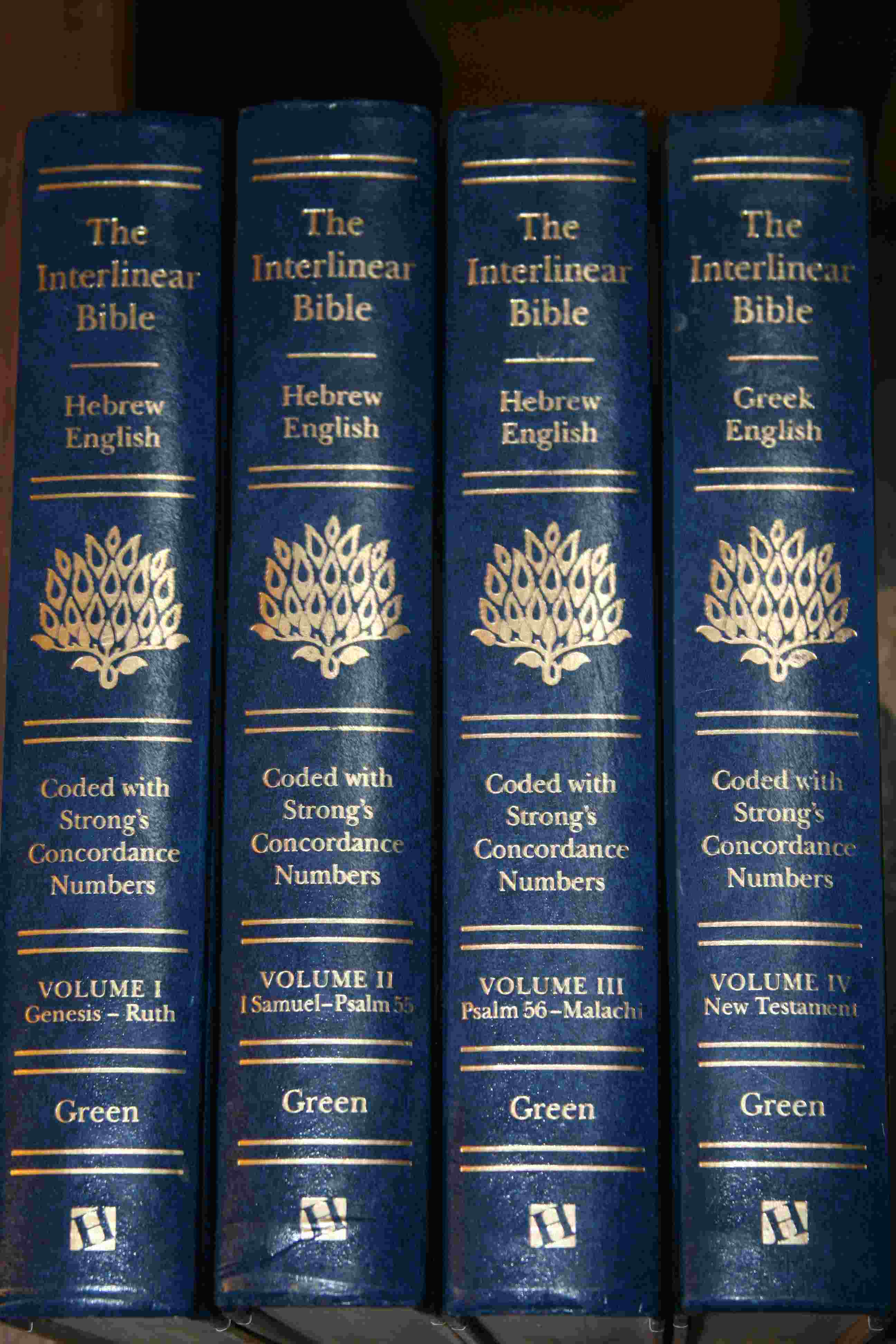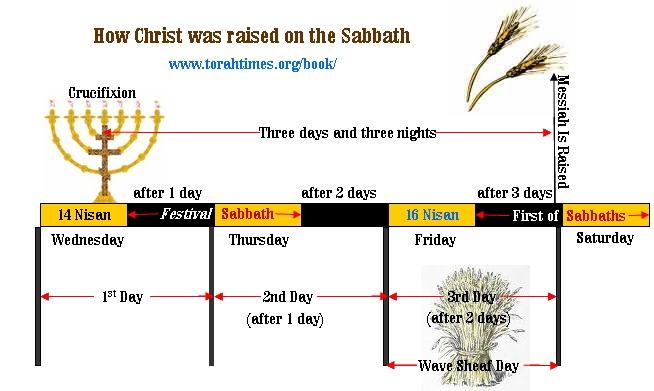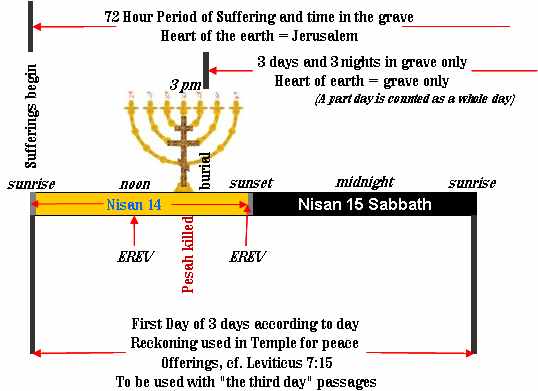

Posted on 10/28/2009 11:14:21 AM PDT by Daniel Gregg
The article? How about from Scripture? What day was it when Mary found the tomb open? It was not on the Sabbath when she found the tomb empty. And the day began at sunset not midnight.
You still haven't even read the article enough to understand its basic positions. The Greek texts that put the resurrection and the visit of the women to the tomb on "the first of the sabbaths" are Scripture. And that paragraph that you didn't read? It proves that the day does not begin at sunset in these circumstances. I know that you don't actually want to quote what the paragraph says to prove this, but that's because I think you are afraid of the evidence.
Wrong I have NO fear of the WORD. The Greek says what now? I think it is on the first day of the week? I do know He was to be in the tomb three days and three nights. And the passover is NOT calculated by the moon but by the solar.
Acts 20:7 and 1 Corinthians 16:2 doesn't seem to support your theory nor does the early Church Fathers (Justin Martyr, Tertullian, etc...).
Also, Apocalypse 1:10 calls it the Lord's Day which is referred to in the Didache (14) "On the Lord's Day come together and break bread. And give thanks after confessing your sins that your sacrifice may be pure."
Jesus was made known in the breaking of the bread on the of the day of the Resurrection (The Lord's Day) on the road to Emmaus.
The counting of days of the week by the Jews was based on the weekly Sabbath not upon festival Sabbaths which wouldn't square with not getting everyone confused.
Why shouldn't Luke 18:12 then be translated as "I fast twice a Sabbath: I give tithes of all that I possess. "?


Acts 20:7, J.P. Green/Concordant Version


1Cor 16:2/Concordant Version

Luke 18:12/Concordant Version

Since you must be new to pre-Catholic history, I would point out that "Lord's Day" in Revelation 1:10 is a reference to the weekly Sabbath before paganism and anti-Semitism took over Christianity. Of course after this well known political change, propaganda was developed to de-judaize the NT documents.
Luke 18:12 means that they skipped two of the three meals on Sabbath. Jews are supposed to feast three meals, but some extra pious Jews skipped two in order to study and pray. Eliezer Segal of the U. of Calgary explains how some extra pious Jews fasted on Sabbath.
There is no evidence of a connection between the "first of the Sabbaths" and the rare Jewish counting of days to the Sabbath you reference. That's like saying that because monkeys and man share 98% DNA that they must be related.
You will have an uphill battle here attempting to convince people that the "First day of the week" does not belong in any translation. They have been brainwashed since little children to believe this nonsense because without it.....the theology of the Mainstream Church will come tumbling down (as it should).
I recall a day in 1959 when it finally dawned on me that the resurrection did not take place on Sunday. I wanted to shout out the evidence to the world......but I soon found out the world didn't want to know. They wanted to continue in their comfortable Churchianity with no rocking of the boat.
It's no different fifty years later. People are not comfortable with the idea of studying the issue themselves, and arriving at a logical conclusion. They would rather believe entrenched false traditions, fairy tales, impossible chronology, and take the word of clergy completely in agreement with an "anything anti Jewish" theology......i.e. (We can't show the resurrection on the Sabbath. That's the special day for the Jews....who killed Our Lord!)
Never mind that 99% of the Church of the First century, founded by the Apostles....were Jewish!
We hold our Messiah to the highest standards and if we lax for a moment (which is what has been going on for the last millennium) then it is no wonder that others question His Messiahship. It says 3 day AND 3 nights. Why should we question Jesus....He does what He says and fulfilled the prophecy not by leaving questions but perfectly and without doubt.
Shalom to you all.
-Jay
Actually....for about the last 1700 years.
Shalom to you....also.

Fatal problems:
1. The resurrection was in the morning:
KJV Hosea 6:1 Come, and let us return unto the LORD: for he hath torn, and he will heal us; he hath smitten, and he will bind us up. 2 After two days will he revive us: in the third day he will raise us up, and we shall live in his sight. 3 Then shall we know, if we follow on to know the LORD: his going forth is prepared as the morning; and he shall come unto us as the rain, as the latter and former rain unto the earth.
2. Luke 24:21 would necessarily take place on Sunday:
KJV Luke 24:21 But we trusted that it had been he which should have redeemed Israel: and beside all this, to day is the third day since these things were done.
But clearly, Sunday can do no better than be the 4th day since these things were done.
Ref: (http://www.lamblion.com/articles/articles_issues14.php).
Now you will see that this has neither problem:

1. For Luke 24:21 count days since the crucifixion making sabbath day after the resurrection the 3rd day "since" (counting exclusively just like in Dr. Regan's scenario.
An excellent argument, Daniel Gregg! Sadly, very few will give it the credence it deserves.
And kudos on the online book. I will try to write you when I have more time - I am a student of the Prophecy, and the same chronologies you have studied. It’s all right there, isn’t it?
The only problem i see is yours seems to say He was buried wed morning but he was buried in the evening. It was the 9th hour in line with the Pesach lamb sacrificings.
or at least the ninth hour was when He died. So he would have had to be buried before nightfall(the start of Thur)
Dan's chronology is a Wednesday crucifixion (12 noon- 3pm), burial before sundown. After sundown, the High Sabbath (Thursday) would begin.
Shalom, Renah
That's a rather minor problem Achi, because its only a misunderstanding. Here is the detail for you:


If both "week"and "sabbath" are the same word (sabbaton [and they are]) and we translate them both to mean sabbath then Matthew 28:1 would read as follows:
"In the end of the sabbath, as it began to dawn toward the first [day] of the Sabbaths, came Mary Magdalene and the other Mary to see the sepulchre."
If this is true then would he not have to be crucified on Thursday at dusk just before Friday starts and then raise on the dawn of Sunday morning? Thoughts?
Shalom,
-Jay
Matthew 28:1 teaches a Sabbath resurrection: "On the later of the Sabbaths, at the dawning for the first of the Sabbaths, came Mary Magdalene and the other Mary to see the tomb." It begins, "On the later Sabbath ..." because there were two Sabbaths in Passion Week. One Sabbath was the annual Passover feast day, and the other was the weekly seventh day Sabbath which followed. In Passion Week, the annual Sabbath was on Thursday. "On the later of the Sabbaths" tells us that the resurrection was on the weekly Sabbath, and not on the annual Sabbath. Jewish believers in Yeshua know that the annual Passover feast day is a rest day as well as the weekly Sabbath.
"In the end of the sabbath...
οψε has the sense of "later" when used with the genitive case in the sense of υστερον (latter). This is mentioned in BLASS's grammar.
Consider: [Mark 15:42-47/16:1] 42 And now when the even was come, because it was the preparation, that is, the day before the sabbath, 43 Joseph of Arimathaea, an honourable counsellor, which also waited for the kingdom of God, came, and went in boldly unto Pilate, and craved the body of Jesus. 44 And Pilate marvelled if he were already dead: and calling unto him the centurion, he asked him whether he had been any while dead. 45 And when he knew it of the centurion, he gave the body to Joseph. 46 And he bought fine linen, and took him down, and wrapped him in the linen, and laid him in a sepulchre which was hewn out of a rock, and rolled a stone unto the door of the sepulchre. 47 And Mary Magdalene and Mary the mother of Joses beheld where he was laid. [16:1] 1 And when the sabbath was past, Mary Magdalene, and Mary the mother of James, and Salome, had bought sweet spices, that they might come and anoint him.
When Stephen Langton, Archbishop of Canterbury put together the Chapter and Verse divisions of Holy scripture (1228 B.C.) he did it without the inspiration of The Holy Spirit. Consequently, many folks are led to believe that the Sabbath in [16:1] is that of Saturday because he begins the 16th chapter with it. When you combine 15:42-47 to 16:1 you can readily see that the Sabbath of 16:1 is the same as 15:42 and then you realize that 16:2 is a different Sabbath.....Saturday. The Greek original has no chapters and verses.....or paragraphs.
What do the women do when the Sabbath is past? They purchase spices. The KJV fudges a bit here by attempting to show it in the past tense but....."Young's Literal Translation" renders it correctly by saying thus: And the sabbath having past, Mary the Magdalene, and Mary of James, and Salome, bought spices, that having come, they may anoint him.
Luke will now show us that the women prepare those spices (obviously on a non Sabbath day) and then they rest for another Sabbath.....Saturday. [Luke 23:56] And they returned, and prepared spices and ointments; and rested the sabbath day according to the commandment.
The Sabbath of [Mark 16:1] is the First Day of Unleavened Bread [Leviticus 23:6], the 15th of Nisan. This fell on a Wednesday night/Thursday daytime in the year of the crucifixion. The women buy the spices after this Sabbath is over.....on Thursday night or Friday daytime....the 16th and a non Sabbath day. They spend much of the day (Friday) in the preparation of those spices. They rest again for the weekly Sabbath beginning at sundown Friday the 17th and visit an empty tomb on Saturday morning at sunrise.....also the 17th.
According to all the Gospels....."He is risen"!
Hi Diego, you might want to consider the following
Luke 23:54-24:1, Two Sabbaths with Spices prepared between them
The Greek structure shows that the chapter division must go in the middle of the Luke 23:56. This is because the second half of the verse is one coordinated sentence with Luke 24:1. This is shown in J.P. Green's Interlinear Bible and explained in the Concordia Commentary by Arthur Just. This proper chapter division is of critical importance to the chronology. In 23:54, the annual Sabbath on Thursday that year is referenced. Then 23:56a tells us that they prepared spices. The initial verse of the next chapter (23:56b-24:1) fills in the detail that they rested on the annual sabbath, but then brought the spices on the first of the sabbaths after the annual sabbath. Necessarily then the spices were prepared on Friday between the two Sabbaths. Mark 16:1 gives us explicit confirmation that the spices were bought after the annual Sabbath.
Photo of J.P. Green's Interlinear:
*Correction from J.P. Green, John 20:1.
comment: "23:56b-24:1. το μεν σαββατον ... τη δε μια των σαββατων—The μεν ... δε construction links these two days together and prompts consideration of a literary and theological link. (In Nestle-Aland25 23:56b begins a new paragraph that continues with 24:1-11; 23:56b is separated from 24:1 only by a comma. In Nestle-Aland26 and Nestle-Aland27 23:56b has been separated from Luke 24 and ends with a period.) The close relationship between 23:56b and 24:1 forms the transition from Luke 23 to Luke 24. The double use of σαββατον and the way Luke has phrased the sentence suggest theological implications as the narrative moves from one day to the next. This is why 23:56b is best considered part of Luke 24 and the resurrection narrative" (Concordia Commentary, Luke 9:51-24:53, Arthur A. Just Jr., 1997).
END OF CHAPTER 23
Luke 23:54 And that day was the preparation, and the sabbath drew on. 55 And the women also, which came with him from Galilee, followed after, and beheld the sepulchre, and how his body was laid. 56 And they returned, and prepared spices and ointments.
CHAPTER 24
[24:1] Now they rested the one Sabbath, [[according to the ordinance,]] 24:1 But upon the first of the Sabbaths, at deep dawn, they came unto the sepulcher, bringing the spices which they made ready, and certain others with them"
Absolutely correct!
A good way to say this is:
[LUKE 23:56b] And on the Sabbath, indeed, they rested, according to the command. [24:1] And on the first of the Sabbaths, at early dawn, they came to the tomb, bearing the spices they made ready, and certain {others} with them.
Luke tells us that the women followed Joseph to the tomb and watched the burial of The Lord. Then we are informed that having returned they made ready spices and ointments. Since the Passover Sabbath was rapidly approaching while The Lord was being buried, the women could not have obtained and prepared the spices for His body that night, the 15th..... or the next day either....still the First Sabbath of Unleavened. Luke tells us here what they did, but he doesn't tell us when they did it. To answer the question of when the women acquired and made ready the spices, we must go to the Gospel of Mark:
[MARK 15:47] And Mary Magdalene and Mary the mother of Joses observed where he was laid. [16:1] Now when the Sabbath was past, Mary Magdalene, Mary the mother of James, and Salome bought spices, that they might come and anoint him.
Disclaimer: Opinions posted on Free Republic are those of the individual posters and do not necessarily represent the opinion of Free Republic or its management. All materials posted herein are protected by copyright law and the exemption for fair use of copyrighted works.